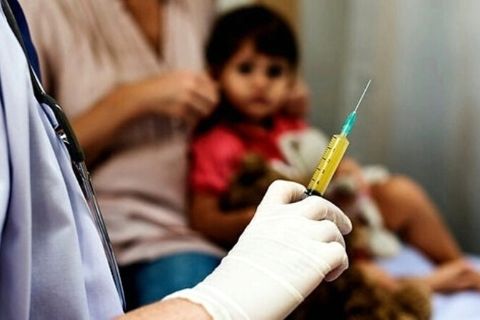At the time of writing this article India reported a total of 2,95,041 new cases. In several households, multiple members from the family have tested positive. In this second wave of the novel Coronavirus (COVID) pandemic, children as young as newborns are also testing positive for the virus.
There has been a 65 per cent increase in COVID-19 positive paediatric cases, in Mumbai alone, since the beginning of March.
The Better India caught up with Dr Krishan Chugh, Director and Head of Department, Paediatrics, Fortis Memorial Research Institute Gurugram, to help us understand what protocols to follow in case children test positive, and ways to keep them protected if an adult at home tests positive.
Dr Chugh begins by saying that there is no age group of children testing positive, babies as well as older children are equally vulnerable to infection.

When it comes to identifying some of the danger signs in children, he says, “Fever touching 104°F—one shouldn’t worry at anything less than 101°F—breathing difficulties, the periphery of the body like hands and palms looking very pale or almost blue, and if you notice that the child is showing signs of complete lethargy then you should immediately rush the child to the nearest hospital.”
Some other markers could include persistent vomiting and a large number of large stools. “None of these symptoms need to be accompanied by another and can very well present themselves independent of each other. Each one of the symptoms is a danger sign by itself,” adds Dr Chugh.
What protocol to follow if a child tests positive?

Dr Chugh admits that symptomatic treatment is the best bet when it comes to treating the SARS COV-2 in children. He says, “There is no medicine that works as a wonder drug for all the symptoms. If the fever persists, a paracetamol needs to be administered at regular intervals. Other symptoms need to be treated as per your physician’s direction. Do not panic and self-medicate in excess, you will do more harm than good.”
In cases where one or more parents test positive, Dr Chugh says that chances of already having exposed the others in the family is very high. In certain cases, if the exposure has not yet occurred, parents ought to take all precautions to ensure that it stays that way. “If your child is in the same area as you and is less than six feet from the infected parent, wearing a well-fitted mask will help,” he says. In cases where the child is not showing any symptoms, Dr Chugh urges parents to refrain from having another family member care for the child.
“This will lead to further exposure and that is exactly what we need to curtail at this point in time,” says Dr Chugh. It might be safer to have the parents care for the child, if they are not too sick to do so. This will also help curtail the virus within one’s home.
Should children wear masks?

Dr Chugh says, “Children should be wearing a mask, as long as it is practical. If it is a small baby, then masks are not needed. However, for children who are over one year and are clinging to a parent who has tested positive, then wearing a mask is advised for both the child and the parent.” Adding to this, Dr Chugh also sheds light on ‘co-sleeping’ when either or both parents have tested positive. He says, “While wearing a mask and sleeping is not a solution, one could consider moving the child to a separate area once the child is in deep sleep.”
He also says that having open conversations with children about the virus, the do’s and don’ts and ways by which one can stay safe, is important. “Have age appropriate conversations and if you can find videos to get the point across to them, then even better,” he says. Do not unnecessarily expose them to news that could leave them scared and fearful.
Few things to keep in mind:
- Monitor the child’s fever and oxygen levels twice a day. If there is any cause for concern, contact the paediatrician immediately.
- Do not self-medicate the child. Always consult the paediatrician before administering any medicine.
- There is no preventive medication available in the market. Do not fall for any such claims being made.
- Keep the child well hydrated at all times.
- Ensure that the room the child is in is well ventilated.
- Given the surge in cases, it is advisable to stay indoors. Allow the number of cases to decrease before you venture out with children.
“Wearing a mask is the key to be able to fight this virus,” Dr Chugh signs off.
(Edited by Yoshita Rao)
No comments:
Post a Comment